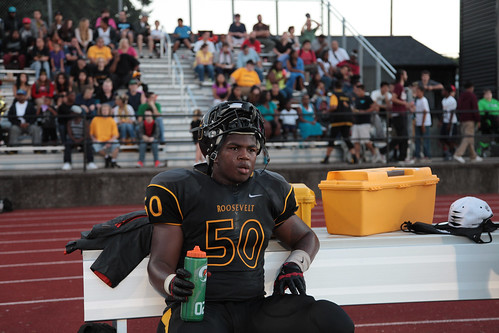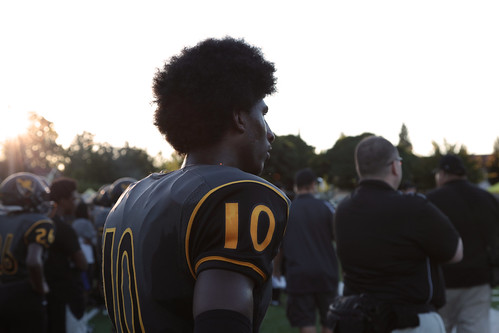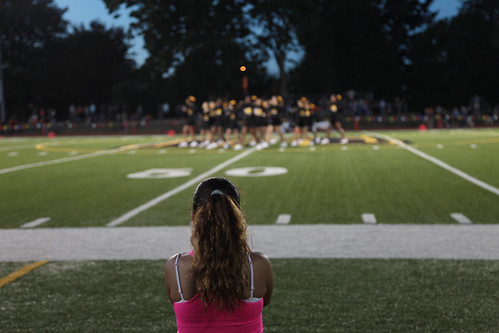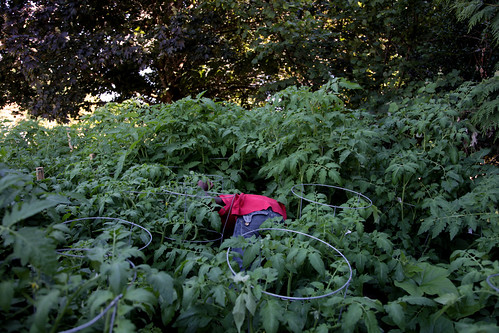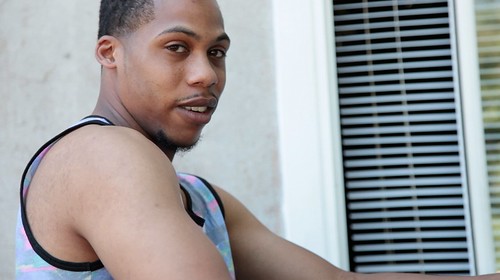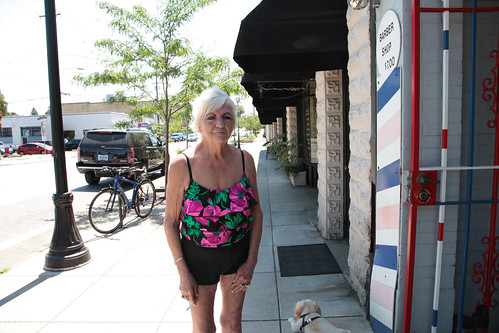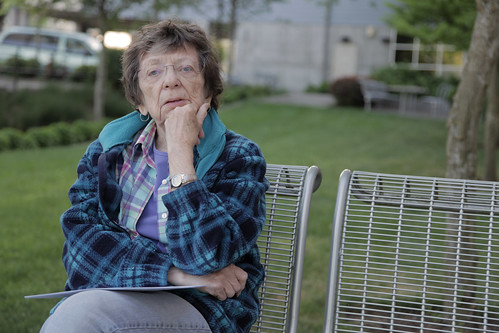
The gym had changed since the days Denmark Reid averaged 23 points a game for Jefferson High School. So had his jumpshot. But Reid and Mitchell Jackson played as if they were boys Friday night, trading shots with a girls-sized ball.
"That's OK, my hands are small anyway," Reid, a former shooting guard, said before sinking a three-pointer.
In the early 1990s, the men played on powerhouse Jefferson teams that led the city in scoring. Their lives diverged after they left that court.
Reid went on to play college ball then settled back in Portland. But Jackson never had the precision his best friend did -- he sold drugs instead. After a prison stint, he changed his course. He graduated from Portland State University then moved to New York City, where he works as a writer and professor.
They came together last week to shoot footage for Jackson's documentary, a film that will accompany his forthcoming novel, The Residue Years. In a two-hour session, Reid, Jackson and current Jefferson coach Pat Strickland talked about the good old days, the legends who never became great, the games they almost won.
"Basketball was it for me," Reid told Jackson. "It gave me options.
Jackson wore a decidedly New York get-up -- a black shirt buttoned to the neck and a pair of gray, fashion-forward slouchers that vaguely resembled sweatpants -- an avant garde uniform that did not go unteased. But Jackson and Reid are cut from the same cloth, 30-somethings reared on basketball and a particular North Portland flavor that has influenced the rest of their lives.
More than 80 percent of the neighborhood around Jefferson High School was African American in the 1990s. Today, less than half is.
But young black men still suit up in Democrat blue, hoping that ball will lift them somewhere else. So much so that a Nike film crew spent the winter documenting the team's season, ending with its 5A state championship.
"If you walked into the street today and asked any kid, they would say they want to play in the NBA," said Strickland, the state's 5A coach of the year.
Basketball was the reason Reid never joined a gang. Basketball was the reason he earned a degree. Reid played only three years at Jeff, but he is third on the school's all-time points list. When he graduated in 1993, his SAT score kept him out of the University of Portland. His 1,490 career points at Jefferson earned him a scholarship to New Mexico State instead.
"Without basketball, there's no telling where I would have been," Reid said. "I just wasn't the smartest guy in the room."
Scouts started following Reid as a middle schooler hooping at Beaumont Middle School. Back then, students could attend any school to play ball, and newspapers covered Reid's decision as if it were LeBron choosing Miami.
But none of the glory, even the later glory of averaging double digits in a Division 1 season, compared with the North and Northeast Portland park games, Reid said.
"Back then, you got your grit in the park," Strickland agreed. "Kids today don't have that park grit. The superstars today are prima donnas. They say, 'That asphalt would hurt my knees.'"
The three were playing in Peninsula Park in 1997, the day Jackson was busted for selling crack.
"What were you thinking when you learned I was slinging dope?" Jackson asked Friday.
"I was in a state of shock," Strickland said. "Square-bear Mitch? This dude is like Urkel, and he's out here doing this?"
Crack was always around the neighborhood then. Jackson's mother used, too. But that wasn't supposed to be Jackson's story, Reid said, because Jackson, now 37, could always write.
He was a decent shooting guard -- "You shot 21 against Benson, but it should have been 50," Reid reminded him -- but he shined in the classroom. The drug charge was shocking. The book deal with Bloomsbury was not.
When it came time to pen his first novel, Jackson called Reid for details. The former star works at Cascadia Behavioral Health now. He has the memory of an elephant. He remembers every stat, every ball that bounced off the rim.
Tell me about the old legends, Jackson said. For hours, they talked about all the hoopers who went through Jefferson. Some ended up in jail. Division 1 dreams disappeared with drugs. A few went to college.
"We were the lucky ones," Reid said.
Then he picked up a ball, headed to center court and shot. Jackson had words, the kind of poetry a publisher noticed, but this was still their language.


